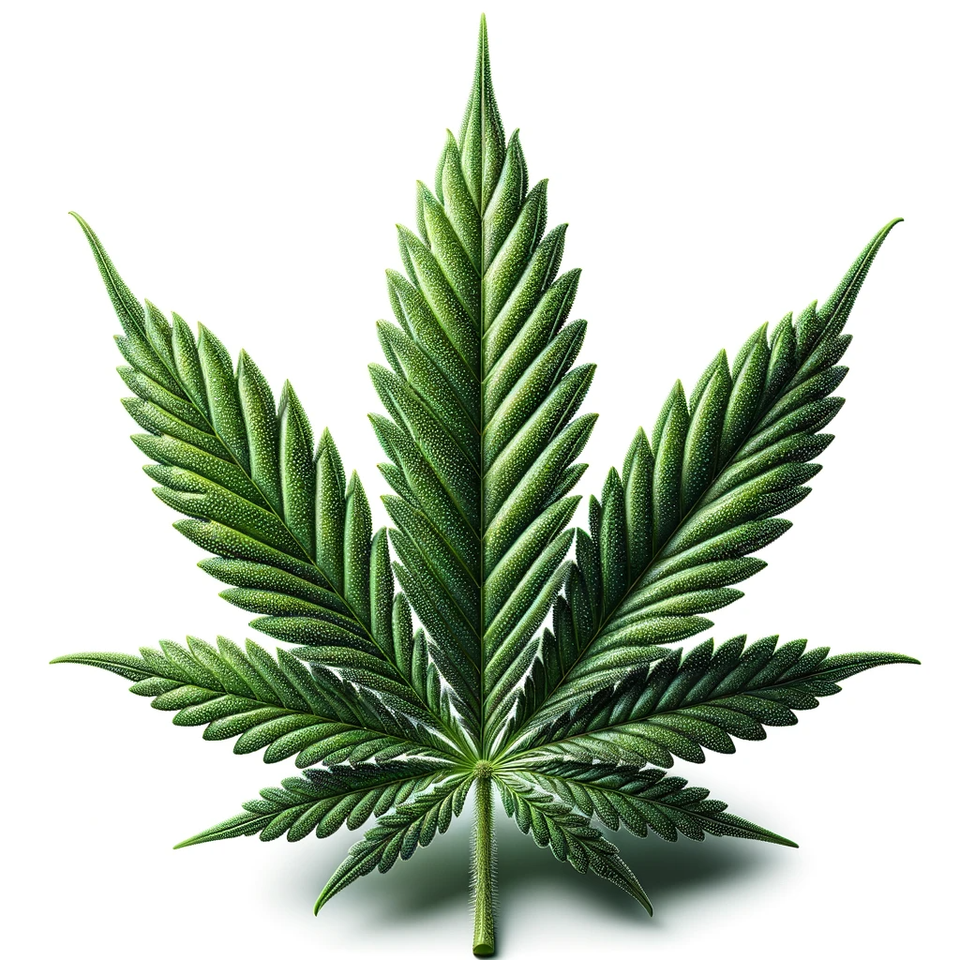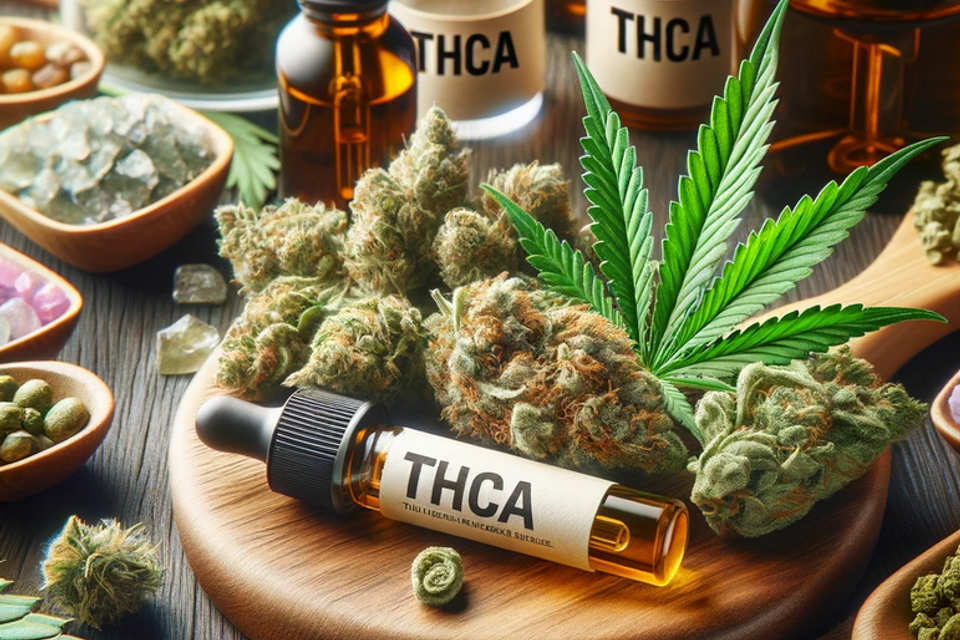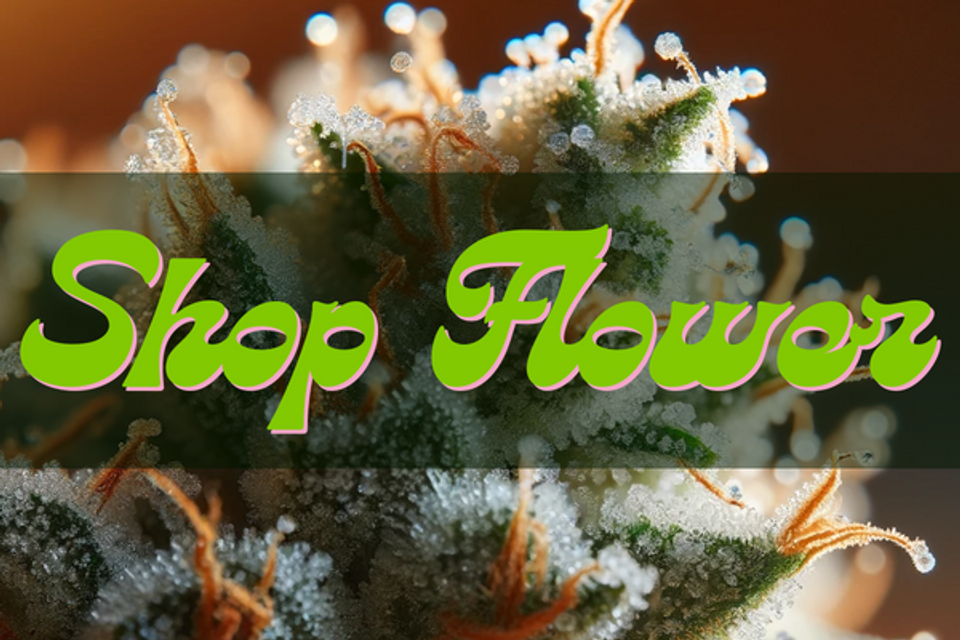
THCA, or Tetrahydrocannabinolic acid, is a fascinating compound in the cannabis plant that has garnered significant attention in recent years. Unlike its more famous counterpart, THC, THCA is non-psychoactive in its natural state. This article explores the potency of THCA, its transformation into THC, and its implications for users. Understanding the potential of THCA is crucial for both medical patients and recreational users, especially those looking to buy THCa online.
THCA is the acidic precursor to THC, the primary psychoactive component in cannabis. In its raw form, THCA does not produce the 'high' associated with THC. However, it holds a wealth of therapeutic benefits, including anti-inflammatory and neuroprotective properties. This compound is found in high concentrations in fresh, undried cannabis, and its presence is a key factor in assessing the quality of THCa flower.
The transformation of THCA into THC occurs through a process called decarboxylation. This chemical reaction is induced by heat, occurring during smoking, vaping, or cooking cannabis. Decarboxylation is critical for those interested in THC edibles, as it activates the psychoactive effects. Understanding this process is essential for users seeking specific effects, whether they are medical or recreational.
While THCA is non-psychoactive, it has shown potential in various medical applications. Its anti-inflammatory properties make it a candidate for treating conditions like arthritis and lupus.
Additionally, the neuroprotective effects of THCA offer promise for neurodegenerative diseases. This aspect is particularly important for medical users considering the purchase of THCA products.
Potency Variation in THCA Flower Strains
THCA, or Tetrahydrocannabinolic acid, is a non-psychoactive cannabinoid found in raw and live cannabis. The potency of THCA in different strains of cannabis, particularly THCa flower strains, varies significantly. This variation is influenced by several factors, including genetics, growing conditions, and post-harvest handling.
Genetic Factors: Different cannabis strains have unique genetic profiles that determine their cannabinoid content, including THCA. Some strains are specifically bred to have higher THCA concentrations. These strains are often sought after for their potential therapeutic benefits without the psychoactive effects of THC.
Growing Conditions: The environment in which a cannabis plant is grown plays a crucial role in the development of cannabinoids. Factors such as light, temperature, and soil nutrients can influence the THCA content in the plant. Optimal growing conditions can enhance the potency of THCA in the flower.
Harvest and Curing: The timing of harvest and the methods used in curing and storing cannabis can affect the THCA levels. If harvested too early or late, the THCA content can vary significantly. Proper curing preserves the THCA content, while improper handling can lead to its degradation.
Assessing THCA Potency
To understand the potency of THCA in different strains, it is important to look at laboratory testing results. These tests provide a percentage of THCA present in the flower, offering consumers a guide to the potency of different strains. For instance, a strain with 15% THCA is considered moderately potent, whereas strains with over 20% THCA are seen as highly potent.
Understanding THCA Potency Levels
The potency of THCA in cannabis strains is typically measured as a percentage of the flower's total weight. This percentage can vary widely, influencing both the therapeutic efficacy and the potential for conversion into THC. Comparing strains with 10% THCA to those with 25% THCA reveals significant differences in their potential effects and uses.
10% THCA Strains: Strains with around 10% THCA are considered to have a moderate level of potency. These strains are often suitable for users who prefer milder effects or are new to using THCA products. The lower THCA content means a less intense experience when the THCA is converted to THC upon heating, making it a good choice for those seeking mild therapeutic benefits without strong psychoactive effects.
25% THCA Strains: On the other hand, strains containing 25% THCA are at the higher end of the potency spectrum. These strains are typically sought after by experienced users or patients who require more potent therapeutic effects. The high THCA content implies that upon decarboxylation, these strains will produce a significant amount of THC, leading to more pronounced psychoactive and medicinal effects.
Impact on Effects and Usage
The difference in potency levels plays a crucial role in how different THCA strains are used:
When selecting a THCA strain, it's important to consider personal tolerance, desired effects, and experience with cannabis products. Users should also be aware of the potential for conversion to THC, especially when using high-potency THCA strains in forms like THC edibles.
Availability and Accessibility
For those interested in exploring different potencies of THCA, options to buy THCa online provide a convenient way to access a range of strains.
Websites like THC edibles offer a selection of products, allowing users to choose according to their potency preferences.
The potency of THCA in cannabis strains can significantly affect their effects and appropriate uses. Understanding the differences between lower potency (10%) and higher potency (25%) strains helps users make informed decisions about their cannabis use, whether for medical or recreational purposes. As the cannabis market continues to grow, the availability of diverse THCA potencies caters to a wide range of needs and preferences.
The Role of THCA in Medical and Recreational Use
In the medical cannabis community, high-THCA strains are valued for their therapeutic properties. THCA has shown promise in treating conditions like inflammation, nausea, and neurodegenerative diseases. For recreational users, the interest in THCA might lie in its potential to convert to THC when heated, thus offering a controlled way to experience THC's effects.
Understanding THCA Dosage
Determining the right dosage of THCA is crucial for achieving the desired effects, whether for medicinal or recreational purposes. Unlike THC, THCA is non-psychoactive, but its potency and the method of consumption still play vital roles in its efficacy. Starting Low and Going Slow: For beginners, it's always advisable to start with a lower dosage and gradually increase it. This approach allows individuals to gauge their tolerance and response to THCA.
Dosage Guidelines: While there's no one-size-fits-all dosage, a common starting point for THCA consumption is around 5-10 mg for a low potency product. For higher potency THCA strains (like those with 25% THCA), starting with a smaller quantity of the flower or product is recommended.
Consumption Methods
The method of consuming THCA can significantly affect its effects: Raw Consumption: Consuming raw cannabis, such as in salads or smoothies, is a popular way to intake THCA. This method preserves the raw form of THCA without converting it to THC. Juicing: Cannabis juicing is another method to consume THCA. It allows for a higher intake of cannabinoids without the psychoactive effects, suitable for those who seek the therapeutic benefits of cannabis without the high. Decarboxylation for THC Conversion: If the desired outcome is to experience THC’s effects, decarboxylation is necessary. This involves heating the cannabis, such as through baking or smoking, to convert THCA into THC. The process should be carefully controlled to avoid overheating, which can degrade the cannabinoids.
Dosage for Specific Needs
Popular THCA Flower Strains
There are several popular strains known for their high THCA content. Strains like 'ACDC' and 'Charlotte's Web' are renowned for their high THCA levels and are often used for their medical benefits. Users looking to experience the unique effects of these strains can consider options to buy THCa flower online from reputable sources like THCa flower.
The potency of THCA in different cannabis strains is a complex topic, influenced by genetics, cultivation practices, and handling. Understanding these factors helps consumers and patients make informed decisions when selecting THCA-rich strains. Whether for therapeutic or recreational purposes, the exploration of THCA potency in various strains offers a rich field of study and use, especially for those interested in the unique properties of THCA flower.
THCA’s Nature and Effects
THCA is the acidic precursor to THC, the primary psychoactive component in cannabis. In its raw form, THCA does not produce the 'high' associated with THC. However, it holds a wealth of therapeutic benefits, including anti-inflammatory and neuroprotective properties. This compound is found in high concentrations in fresh, undried cannabis, and its presence is a key factor in assessing the quality of THCa flower.
Decarboxylation Process
The transformation of THCA into THC occurs through a process called decarboxylation. This chemical reaction is induced by heat, occurring during smoking, vaping, or cooking cannabis. Decarboxylation is critical for those interested in THC edibles, as it activates the psychoactive effects. Understanding this process is essential for users seeking specific effects, whether they are medical or recreational.
Medical Applications of THCA
While THCA is non-psychoactive, it has shown potential in various medical applications. Its anti-inflammatory properties make it a candidate for treating conditions like arthritis and lupus.
Additionally, the neuroprotective effects of THCA offer promise for neurodegenerative diseases. This aspect is particularly important for medical users considering the purchase of THCA products.
Exploration of THCA Potency in Different Strains
Potency Variation in THCA Flower Strains
THCA, or Tetrahydrocannabinolic acid, is a non-psychoactive cannabinoid found in raw and live cannabis. The potency of THCA in different strains of cannabis, particularly THCa flower strains, varies significantly. This variation is influenced by several factors, including genetics, growing conditions, and post-harvest handling.
Genetic Factors: Different cannabis strains have unique genetic profiles that determine their cannabinoid content, including THCA. Some strains are specifically bred to have higher THCA concentrations. These strains are often sought after for their potential therapeutic benefits without the psychoactive effects of THC.
Growing Conditions: The environment in which a cannabis plant is grown plays a crucial role in the development of cannabinoids. Factors such as light, temperature, and soil nutrients can influence the THCA content in the plant. Optimal growing conditions can enhance the potency of THCA in the flower.
Harvest and Curing: The timing of harvest and the methods used in curing and storing cannabis can affect the THCA levels. If harvested too early or late, the THCA content can vary significantly. Proper curing preserves the THCA content, while improper handling can lead to its degradation.
Assessing THCA Potency
To understand the potency of THCA in different strains, it is important to look at laboratory testing results. These tests provide a percentage of THCA present in the flower, offering consumers a guide to the potency of different strains. For instance, a strain with 15% THCA is considered moderately potent, whereas strains with over 20% THCA are seen as highly potent.
Varying Potency Levels of THCA: 10% vs 25%
Understanding THCA Potency Levels
The potency of THCA in cannabis strains is typically measured as a percentage of the flower's total weight. This percentage can vary widely, influencing both the therapeutic efficacy and the potential for conversion into THC. Comparing strains with 10% THCA to those with 25% THCA reveals significant differences in their potential effects and uses.
10% THCA Strains: Strains with around 10% THCA are considered to have a moderate level of potency. These strains are often suitable for users who prefer milder effects or are new to using THCA products. The lower THCA content means a less intense experience when the THCA is converted to THC upon heating, making it a good choice for those seeking mild therapeutic benefits without strong psychoactive effects.
25% THCA Strains: On the other hand, strains containing 25% THCA are at the higher end of the potency spectrum. These strains are typically sought after by experienced users or patients who require more potent therapeutic effects. The high THCA content implies that upon decarboxylation, these strains will produce a significant amount of THC, leading to more pronounced psychoactive and medicinal effects.
Impact on Effects and Usage
The difference in potency levels plays a crucial role in how different THCA strains are used:
- Medical Use: Patients requiring stronger relief for symptoms like chronic pain, severe inflammation, or neurological disorders might opt for higher potency strains. The 25% THCA strains can provide more substantial therapeutic benefits.
- Recreational Use: For recreational users, the choice between 10% and 25% THCA strains often depends on their tolerance and desired experience. A 10% THCA strain offers a milder, more manageable experience, while a 25% strain leads to more intense effects.
When selecting a THCA strain, it's important to consider personal tolerance, desired effects, and experience with cannabis products. Users should also be aware of the potential for conversion to THC, especially when using high-potency THCA strains in forms like THC edibles.
Availability and Accessibility
For those interested in exploring different potencies of THCA, options to buy THCa online provide a convenient way to access a range of strains.
Websites like THC edibles offer a selection of products, allowing users to choose according to their potency preferences.
The potency of THCA in cannabis strains can significantly affect their effects and appropriate uses. Understanding the differences between lower potency (10%) and higher potency (25%) strains helps users make informed decisions about their cannabis use, whether for medical or recreational purposes. As the cannabis market continues to grow, the availability of diverse THCA potencies caters to a wide range of needs and preferences.
The Role of THCA in Medical and Recreational Use
In the medical cannabis community, high-THCA strains are valued for their therapeutic properties. THCA has shown promise in treating conditions like inflammation, nausea, and neurodegenerative diseases. For recreational users, the interest in THCA might lie in its potential to convert to THC when heated, thus offering a controlled way to experience THC's effects.
User Guide on Dosage and Consumption Methods for THCA
Understanding THCA Dosage
Determining the right dosage of THCA is crucial for achieving the desired effects, whether for medicinal or recreational purposes. Unlike THC, THCA is non-psychoactive, but its potency and the method of consumption still play vital roles in its efficacy. Starting Low and Going Slow: For beginners, it's always advisable to start with a lower dosage and gradually increase it. This approach allows individuals to gauge their tolerance and response to THCA.
Dosage Guidelines: While there's no one-size-fits-all dosage, a common starting point for THCA consumption is around 5-10 mg for a low potency product. For higher potency THCA strains (like those with 25% THCA), starting with a smaller quantity of the flower or product is recommended.
Consumption Methods
The method of consuming THCA can significantly affect its effects: Raw Consumption: Consuming raw cannabis, such as in salads or smoothies, is a popular way to intake THCA. This method preserves the raw form of THCA without converting it to THC. Juicing: Cannabis juicing is another method to consume THCA. It allows for a higher intake of cannabinoids without the psychoactive effects, suitable for those who seek the therapeutic benefits of cannabis without the high. Decarboxylation for THC Conversion: If the desired outcome is to experience THC’s effects, decarboxylation is necessary. This involves heating the cannabis, such as through baking or smoking, to convert THCA into THC. The process should be carefully controlled to avoid overheating, which can degrade the cannabinoids.
Dosage for Specific Needs
- Medicinal Use: Patients using THCA for medical purposes should consult with a healthcare provider for dosage recommendations, especially if they are using cannabis as part of a treatment plan for specific conditions.
- Recreational Use: Recreational users looking for a mild experience with the health benefits of THCA might prefer consuming raw THCA in lower doses. Those seeking the psychoactive effects of THC should carefully dose the THCA before decarboxylation.
- Quality of Product: The quality of the THCA product greatly influences its effectiveness. Purchasing high-quality THCa flower or products from reputable sources like buy THCa online ensures a better experience.
- Individual Factors: Factors like body weight, metabolism, and individual tolerance can affect how THCA impacts an individual. Users should consider these factors when determining their dosage.
Popular THCA Flower Strains
There are several popular strains known for their high THCA content. Strains like 'ACDC' and 'Charlotte's Web' are renowned for their high THCA levels and are often used for their medical benefits. Users looking to experience the unique effects of these strains can consider options to buy THCa flower online from reputable sources like THCa flower.
The potency of THCA in different cannabis strains is a complex topic, influenced by genetics, cultivation practices, and handling. Understanding these factors helps consumers and patients make informed decisions when selecting THCA-rich strains. Whether for therapeutic or recreational purposes, the exploration of THCA potency in various strains offers a rich field of study and use, especially for those interested in the unique properties of THCA flower.



